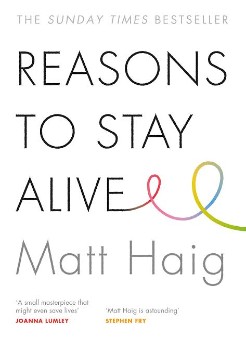This book is impossible
THIRTEEN YEARS AGO I knew this couldn’t happen.
I was going to die, you see. Or go mad.
There was no way I would still be here. Sometimes I doubted I would even make the next ten minutes. And the idea that I would be well enough and confident enough to write about it in this way would have been just far too much to believe.
One of the key symptoms of depression is to see no hope. No future. Far from the tunnel having light at the end of it, it seems like it is blocked at both ends, and you are inside it. So if I could have only known the future, that there would be one far brighter than anything I’d experienced, then one end of that tunnel would have been blown to pieces, and I could have faced the light. So the fact that this book exists is proof that depression lies. Depression makes you think things that are wrong.
But depression itself isn’t a lie. It is the most real thing I’ve ever experienced. Of course, it is invisible.
To other people, it sometimes seems like nothing at all. You are walking around with your head on fire and no one can see the flames. And so – as depression is largely unseen and mysterious – it is easy for stigma to survive. Stigma is particularly cruel for depressives, because stigma affects thoughts and depression is a disease of thoughts.
When you are depressed you feel alone, and that no one is going through quite what you are going through. You are so scared of appearing in any way mad you internalise everything, and you are so scared that people will alienate you further you clam up and don’t speak about it, which is a shame, as speaking about it helps. Words – spoken or written – are what connect us to the world, and so speaking about it to people, and writing about this stuff, helps connect us to each other, and to our true selves.
I know, I know, we are humans. We are a clandestine species. Unlike other animals we wear clothes and do our procreating behind closed doors. And we are ashamed when things go wrong with us. But we’ll grow out of this, and the way we’ll do it is by speaking about it. And maybe even through reading and writing about it.
I believe that. Because it was, in part, through reading and writing that I found a kind of salvation from the dark. Ever since I realised that depression lied about the future I have wanted to write a book about my experience, to tackle depression and anxiety head-on. So this book seeks to do two things. To lessen that stigma, and – the possibly more quixotic ambition – to try and actually convince people that the bottom of the valley never provides the clearest view. I wrote this because the oldest clichés remain the truest. Time heals. The tunnel does have light at the end of it, even if we aren’t able to see it. And there’s a two-for-one offer on clouds and silver linings. Words, just sometimes, can set you free.
